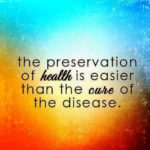Fatigue is a constant physical and mental tiredness. According to the Centers for Disease Control and Prevention 1 in 3 Americans state that they don’t get enough sleep. Poor sleep can facilitate fatigue. An adult is supposed to get 7 to 8 hours of sleep per day.
Poor sleep can also lead to low productivity levels, hence fulfilling normal tasks becomes a daunting task. Fatigue can be due to a host of causes, the most common being health complications. Some of the terms people use to describe fatigue are malaise, feeling rundown and exhausted.
According to Emedicinehealth, 20% to 60% of fatigue is brought about by some physical cause while 40% to 80% is brought about by emotional or mental causes. It usually improves in a few hours or a day in healthy people.
Types of fatigue
Physical fatigue: you find it difficult to do physical activities that were once easy to do. For example climbing stairs.
Mental fatigue: you find it hard to concentrate on a single task at hand. You may also find it difficult to stay awake while working.
Causes of fatigue
Causes of tiredness are many. Diseases can be a common cause as tiredness tends to be a symptom in many. When a person experiences prolonged mental or emotional exertion, he can suffer from chronic fatigue. It can be brought about by lifestyle habits or diseases. Some of the causes include:
Mental health issues
It can occur due to depression, eating disorders, drug abuse, alcoholism, boredom, and stress. Insomnia can also lead to fatigue.
Drugs and medication
Change of medication can cause fatigue in most people. Also, people who use some antidepressants, steroids, sedatives, statins and anxiety drugs can suffer from anxiety.
Sleep problems
Extra night work hours, insomnia, sleep apnea, jet leg, narcolepsy and reflux esophagitis can lead to fatigue.
Chemicals and substances
Consuming many alcoholic beverages and caffeinated drinks can lead to sleeplessness if taken near bedtime. Vitamin deficiencies, poisoning and mineral deficiency can disrupt normal sleep pattern.
Lung and heart conditions
Pneumonia, coronary heart disease, acid reflux, asthma, GERD, inflammatory bowel disorder, valvular heart disorder and chronic obstructive pulmonary disease can cause fatigue in patients.
Lifestyle factors
Maybe related to inactivity. If you do fewer exercises, the body becomes deconditioned making it hard for you to perform simple physical tasks. Fatigue can also affect you if you engage in intense activities. If you work for long hours without breaks, you are more prone to fatigue.
Being overweight and underweight
Being overweight risks one being extremely tired due to the extra weight one carries. Also, it can lead to bone and muscle pains. Obesity can also lead to sleep apnea and diabetes that cause fatigue. Being underweight can also trigger tiredness. It can occur based on their conditions. For example cancer and overactive thyroids can lead to excessive tiredness.
Chronic pain
Patient with chronic pain rarely gets enough sleep. They wake up tired and sleepy due to poor rest. This combination can cause excessive tiredness.
Various conditions, diseases, and treatments
Radiotherapy, fibromyalgia, obesity, chronic fatigue syndrome, massive blood loss, systemic lupus, chemotherapy, a weakened immune system and rheumatoid arthritis cause severe tiredness. It can also be as a result of infections such as malaria, tuberculosis, HIV infection, flu infection, cytomegalovirus, and hepatitis.
What are the symptoms of fatigue?
The most common symptoms of fatigue are exhaustion. You find it hard to do simple chores around the house. Concentrating in one task also becomes difficult. Symptoms may either be physical, emotional or mental. The symptoms include:
- Low motivation
- Appetite loss
- A reduced immune system function
- Moodiness
- Muscle weakness
- Slowed responses and reflexes
- A headache
- Dizziness
- Chronic sleepiness and tiredness
- Daytime drowsiness
- Irritability
- Gastrointestinal complications such as abdominal pain and diarrhea
- Difficulty in concentrating
- hallucination
Other symptoms may be a rapid heartbeat, fainting, near-sycope. The above symptoms enable a health practitioner to diagnose what may lead to fatigue.
Treatment for fatigue
It can usually be treated by treating underlying medical complications. Most of the medical complications can be treated. For example:
- use of machines to help sleep apnea
- iron supplements to treat anemia
- Medication to control levels of blood sugar.
- Antibiotics to treat infections.
Some of the ways one can use to treat fatigue include:
Yoga and mindfulness
People who underwent mindfulness training reported that their quality of life improved and stress,tiredness, and anxiety reduced. Yoga also was cited to help reduce tiredness and improve the overall health of the individual.
Quality sleep
Make sure to get adequate sleep every day. At least 7 to 8 hours of sleep. Always go to bed at the same time every day. For quality sleep dime the lights and observe silence. Avoid meals 2 hours before retiring to bed. Avoid screen light from smartphones, laptops, and TVs before bed. This light tends to make the brain active. A sleep diary might do the trick here.
Diet
What you drink and eat can have an effect on your tiredness levels. To lower your tiredness make sure you eat small but frequent meals throughout the day. Forego junk food and settle for whole foods. Drink caffeine and alcoholic drinks in moderation. Avoid those 3 hours before sleep. Ensure you eat enough vegetables and fruits and avoid sugary snacks. A healthy and balanced diet is the answer to good rest and better health.
Physical activities
Constant physical exercises improve your overall health and the quality of sleep. If you have not been active for a while. Introduce exercises gradually and exercise in your most productive hours of the day. As a long distance driver, you should avoid too many hours behind the wheel. If you notice the following, its time you took a break:
- Having difficulty concentrating on the wheel
- Missing exits and entrances
- Blinking and yawning
- Drifting across lanes on either side
- Not recalling miles traveled
- Driving onto rumble strips
If the above tips don’t address your fatigue. You need to see a doctor for further diagnosis and treatment. Ensure you don’t overwork yourself to avoid excessive tiredness.








